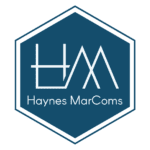I was recently asked to review the concept of hard copy pocket emergency guidebooks. I came to the conclusion that there is no better solution on the market at present.
Providing staff easy to use printed emergency pocket guidebooks after they have been trained in security awareness will help them recall procedures and make the proper responses in an emergency. Mini checklists in the guidebooks contain all relevant information that your staff should know in the event of emergency incidents – from medical emergencies to bomb threats.
Guidebooks are convenient since they are carried on person. This allows frequent review and quick access when needed. Customised safety guidebooks in multiple languages and scripts contain site maps and floor plans of the property so employees have this information at their fingertips at all times.
Emergency guidebooks are also available in digital format for smart phones, but during an IED-search (improvised explosive device) or gas leak electronic devices they are to be avoided. In such cases printed emergency guidebooks are best practice. They never run out of battery power either.
In the United States, pocket size guidebooks are best practice in hotels, universities, and sport & event areas. Since hurricane Katrina in 2005 they are also highly recommended by Emergency Managers in preparation for tornadoes, tsunami warnings, flooding, bush fires, blackouts, and earthquakes.
Trainer, Dale Currier from the Office of Counter Terrorism/NY State Homeland Security, is also convinced that printed guidebooks are the solution in handling emergency checklists. He commented to the leading guidebook publisher for hotels, sports venues and the educational sector, Wellspring Info: “People don’t need a three-inch thick emergency plan—they need quick hits in their hands like yours.”
Lessons from the Paris attacks
The world is still reeling from the horrible tragedy that unfolded when Paris was struck by a number of coordinated terrorist attacks last Friday the 13th November 2015. It was the worst terrorist attack ever in Europe and I’m sure our whole hospitality mourns for the victims, the injured and their families.
An active shooter incident is a horrendous situation for those caught up in it. Incidents like this often take place in locations you would not suspect and on days you would not expect.
Security personnel and staff in the targeted venues such as the soccer stadium of Paris had to react quickly and make the right calls. Those incidents remind us of the importance of having several different evacuation plans in place. For example, the guidebooks I have been describing contain site maps, floor plans and evacuation routes that are easy to read and follow when facing an emergency.
Guidebooks can help your employees stay focused during a crisis, as there is often no time or way to communicate with management for instructions. Management should keep in mind that a pocket guide can possibly be the only way to communicate with your staff during an emergency. So whatever you want to tell them, whatever they need to know for the safety of guests and staff, including their own, describe it clearly in the pocket guide.
Having information on how to deal with a crisis always on their person will build confidence in your staff. Emergency services will also appreciate reviewing the guidebook to better coordinate their response.
Here is an example of an Active Shooting Procedure that you can find in practical pocket size emergency guidebooks for hotels.
- Evacuate
- Have an escape route and plan in mind
- Leave your belongings behind
- Hideout
- Hide in an area out of the shooter’s view
- Block entry to your hiding place and lock doors
- Turn off lights if possible
- Silence your cell phone
. Should you be in the same room with the assassin/s, lay on the floor head down and don’t move.
- Take action
- As a last resort – and only when your life is in imminent danger
- Attempt to disarm and immobilise the shooter.
- Call the emergency number when it is safe to do so.
About the author
Stefan Vito Hiller is the Founder and Managing Director of Sky Touch Global Hotel Security Consulting. He is an independent Global Risk Consultant to hotels with over 21 years international experience in the hotel and security industry. His hotel experience includes room’s division management, pre-opening, fire, health and safety, risk management and cost control. Stefan has worked for leading hotel brands, such as Sheraton, Hilton, Marriott and Choice Hotels in the United Kingdom, Ireland and the Middle East.
He graduated in 2002 as a Hotel Management Consultant at the Steigenberger Hotel Management School. He worked three years in Ireland where he built on his experience as a former volunteer fire officer and became a qualified IOSH Health and Safety Officer. He effectively combined the field of Health and Safety with his positions. He has worked for 5 years for Securitas in Germany as a Product Manager for Hotel and Tourism. At Securitas he was responsible for the Hotel Segment and he built a competence centre for Europe within the group.
Stefan Vito Hiller consults to hotels to implement innovative and affordable strategies to raise their level of security to meet growing global demands. He has invested significant time studying hotel security best practices around the globe, evaluating their efficiency. He specialises in covert audits and he also consults architects in how to design safe hotels.



















